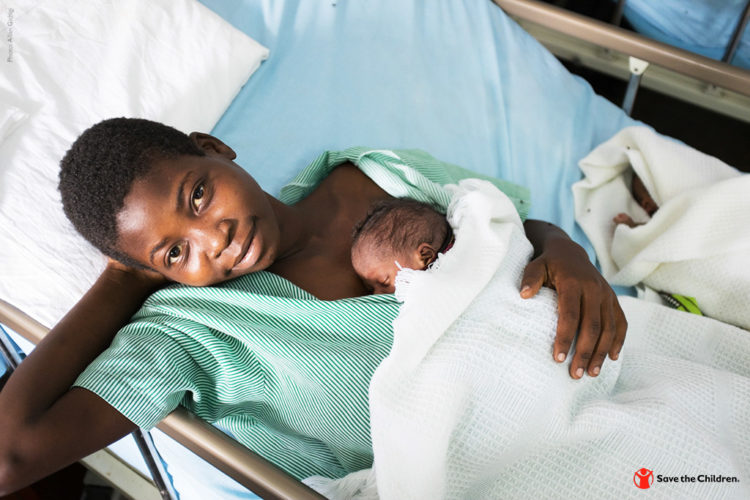Globally, nearly 30 million babies are born too soon, too small or become sick every year and need specialized care to survive. This staggering number was published in the report, Survive and Thrive: Transforming care for every small and sick newborn, by UNICEF, the World Health Organization, Save the Children and other partners at the end of 2018. Most of these babies can survive and live without major complications with quality and nurturing care.
Evidence indicates that involving parents and families or other caregivers in the care of the small and sick newborns benefits both the infants and parents including higher breastfeeding rates, earlier discharge from the hospital, increased weight gain, improved neurodevelopment, reduced parental stress and anxiety, and improved health-related knowledge and beliefs among parents and communities.
Here are five priorities from the report for involving parents and families in the care of small and sick newborns during hospitalization:
Promote Zero Separation
Evidence shows that the well-being and survival of both mother and newborn are inextricably linked and require a coordinated, integrated approach. This not only optimizes their health but also promotes greater efficiency, lowers costs and reduces the duplication of resources. For example, mother’s presence is crucial to establish breastfeeding and to promote Kangaroo Mother Care. Promoting zero separation reduces the risk for short- and long-term health and social problems, including parental depression and anxiety.
Intentionally Engage Men
While women have a unique role as mothers, evidence also shows that men also have a key role in the care of newborns, as partners/husbands, fathers, caregivers and community members. Men often determine health care seeking as well as provide care to the newborn and mother. Health services should accommodate men to accompany their partners, including service hours, physical space and privacy for care visits.
Involve Parents in the Care During Hospitalization
Parents or other caregivers make unique contributions by being able to observe, monitor and provide care to their small and sick newborns (when appropriate, under supervision and in partnership with the health-care team). A recent randomized control trial found that parental involvement during the inpatient neonatal intensive care benefits newborn health outcomes, including infant weight gain and increased frequency of exclusive breastmilk feeding at discharge, as well as a boon to parental mental health. Interventions, such as Kangaroo Mother Care, empowers families to care for their small newborns and shortens their length of stay in the hospital.
Practice Family-Centered Care
Family-centered care for small and sick newborns has a growing evidence base with demonstrated benefits for infants (such as weight gain and neurodevelopmental progress) as well as parents (such as decreased parental stress and anxiety and increased caregiving efficacy). This approach implements four basic principles: dignity and respect; information sharing; participation; and collaboration, and is recommended by the American Academy of Pediatrics. Hospitals and communities should provide space at the facility or nearby for parents or family members, as needed.
Empower Parents
Parents are powerful agents of change for small and sick newborn care supporting other parents and influencing policy and programs. Support forums for parents, including parent-led, peer-to-peer and health professional-led groups, improve the home environment, parental mental health and parental confidence in caring for their child. Parent advocacy and support organizations raise awareness and share their experiences to help others in the same situation through events like World Prematurity Day.
Thank to the generous support of our donors, Save the Children has a long-standing experience promoting family engagement in newborn care, such as with Kangaroo Mother Care, demand creation for community-based newborn care, and quality improvement activities. In order to transform care for small and sick newborns, intentional efforts must be made to involve parents, and we remain committed to this effort as part of our broader approach to improve maternal and newborn health. That means that together, we have the chance to make a lifetime of change for millions of newborn babies.
To learn more about the work Save the Children has done to save newborn lives, visit our website.
This blog is cross-posted from the Save The Children blog.
This blog is also part of the HNN collection, Telling Your Story: transforming care for small and sick newborns. If you have a story to share about transforming care for small and sick newborns, send a 300-600-word blog about your experience or research to info@healthynewbornnetwork.org.
